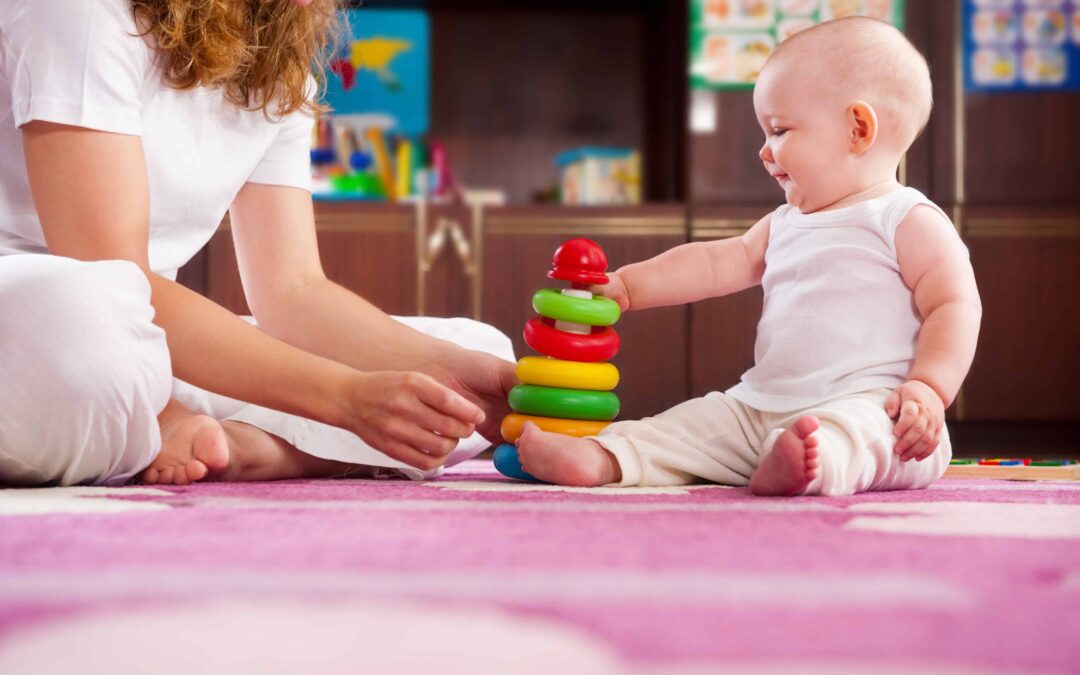Young children are always on the move, which means they are always using their motor skills. It is through movement that children learn many skills as they engage in play. Children use the small muscles in their fingers, hands, and wrists in many tasks throughout their daily routines.
DEFINITION OF MOTOR DEVELOPMENTAL DELAYS
Children use the small muscles in their fingers, hands, and wrists in many tasks throughout their daily routines. Zippering a coat, feeding themselves, and brushing their teeth are just some ways that children use these fine motor skills first thing in the morning. When they jump, run, push, or pull they are using the large muscles in their bodies, or gross motor skills.
Developmental delays are when a child continues to develop in a specific area, but is well behind their peers’ development. With motor developmental delays the child struggles with movements and coordination with either their small muscles (fine motor), large muscles (gross motor), or both. This can lead to a lot of frustration and they may avoid certain types of activities.
HOW TO TELL IF YOUR CHILD HAS A MOTOR DEVELOPMENTAL DELAY
Children with motor delays may avoid or become easily frustrated with activities that other kids usually enjoy. For example, your child may avoid activities that involve writing and drawing, or they may get frustrated when trying to build with blocks. Speech also requires the use of the small muscles in the lips, tongue, and mouth which is why speech delays can be a sign of motor delays. Here are a few things to watch for if you are concerned that your preschooler may have motor developmental delays.
- Speech delays
- Poor hand-eye coordination
- Clumsiness
- Has difficulty climbing on and off furniture
- Needs help going upstairs
- Doesn’t show interest in grasping objects
- Avoids fine motor activities
- Has poor balance
HOW TO SUPPORT YOUR CHILD IF THEY HAVE A MOTOR DEVELOPMENTAL DELAY
The best way to support your child if they have a motor developmental delay is to provide them with opportunities to strengthen their motor skills as much as possible. Keep in mind though that your child may become frustrated and uninterested if the tasks are too difficult. To avoid this, be sure to provide opportunities for them to build strength through play.
SUPPORTING FINE MOTOR DEVELOPMENT
If your child’s delay mostly effects their fine motor skills don’t jump straight to practicing using scissors. Instead, start small by setting up a “cutting bin”. Since they are unable to use scissors successfully at this time though, start by having them crumple paper. This will build the muscles in your preschoolers hands. Then they can move on to ripping paper. Holding the paper between their thumbs and forefingers and then tearing will build the muscles in the hands and fingers, and also build coordination. Manipulating playdough is another great way to build fine motor skills that is fun.
It is still important to encourage your preschooler to attempt the fine motor tasks in their daily routine. They can try to zipper their coat, with your support, instead of just having someone do it for them. This will help build their fine muscle strength and make them practice having patience with themselves.
SUPPORTING GROSS MOTOR DEVELOPMENT
For children who struggle with gross motor development, the focus will be on large muscle movements. For example, balance and coordination can be challenging. To help support the development of gross motor skills, get your child engaged in activities such as obstacle courses and races that require different types of movement. As with anything that young children do, learning it through play is best. Let them dance, play on the playground, and dig in the dirt to help support the development of their gross motor skills.
If you are concerned that your child may have motor developmental delays, then reach out to your child’s pediatrician. They can evaluate your child’s development and guide you to the next steps in supporting your child’s motor development.

